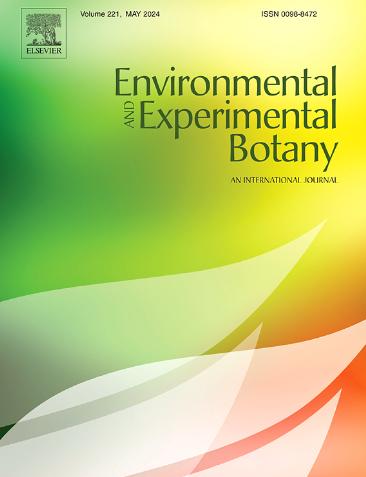二甲基亚砜通过激活抗氧化和自噬机制,协同减轻镉诱导的白菜氧化损伤
IF 4.7
2区 生物学
Q2 ENVIRONMENTAL SCIENCES
引用次数: 0
摘要
镉(Cd)是一种剧毒重金属,会限制植物生长,影响作物产量,引发粮食危机。二甲基亚砜(DMSO)是生物学研究中常用的溶剂,但其在植物和动物抗镉毒性方面的潜在应用尚未见报道。在这里,低浓度的二甲基亚砜被证明可以增加小白菜幼苗的生物量;更重要的是,在Cd胁迫条件下,DMSO可以减少Cd的积累,从而减轻Cd引起的损伤。具体来说,DMSO可以通过增强内源活性氧(ROS)清除酶促或非酶促抗氧化剂的活性,调节关键应激反应基因的表达,激活根细胞的自噬和凋亡保护,从而清除过量的ROS,恢复细胞膜的整合,增强植物对Cd诱导的植物毒性的耐受能力,从而增强植物对Cd胁迫的防御机制。我们的研究结果表明,DMSO可能通过激活自噬和抗氧化剂协同作用产生的保护机制,在减轻cd诱导的氧化损伤中发挥重要作用。这些发现将有助于制定减轻镉污染的策略,并确保白菜这一重要蔬菜来源的生产安全。本文章由计算机程序翻译,如有差异,请以英文原文为准。
Dimethyl sulfoxide synergistically mitigates cadmium-induced oxidative damage in pak choi by activating antioxidant and autophagy mechanisms
Cadmium (Cd) is one of the highly toxic heavy metals that restricts plant growth, affects crop yields, and triggers food crises. Dimethyl sulfoxide (DMSO) is frequently used solvent in biological studies, and its potential application in resistance to Cd toxicity in plants and animals has not been reported. Here, low concentrations of DMSO alone were demonstrated to increase the biomass of pak choi seedlings; more importantly, under Cd stress conditions, DMSO was shown to reduce Cd accumulation, and thereby alleviate Cd-induced damages. Specifically, DMSO could enhance plant defense mechanisms against Cd stress by strengthening the activities of endogenous reactive oxygen species (ROS) -scavenging enzymatic or non-enzymatic antioxidants, regulating the expression of key stress-responsive genes, as well as activating autophagy and apoptosis protection in root cells, thereby scavenging excessive ROS, restoring integration of cell membranes, and conferring tolerance to Cd-induced phytotoxicity. Our results showed that DMSO could play a vital role in mitigating Cd-induced oxidative damage by activating the protective mechanisms generated by the synergistic effects of both autophagy and antioxidants. These findings will help to formulate strategies to mitigate Cd contamination and to ensure the safety of cabbage production, an important vegetable source.
求助全文
通过发布文献求助,成功后即可免费获取论文全文。
去求助
来源期刊

Environmental and Experimental Botany
环境科学-环境科学
CiteScore
9.30
自引率
5.30%
发文量
342
审稿时长
26 days
期刊介绍:
Environmental and Experimental Botany (EEB) publishes research papers on the physical, chemical, biological, molecular mechanisms and processes involved in the responses of plants to their environment.
In addition to research papers, the journal includes review articles. Submission is in agreement with the Editors-in-Chief.
The Journal also publishes special issues which are built by invited guest editors and are related to the main themes of EEB.
The areas covered by the Journal include:
(1) Responses of plants to heavy metals and pollutants
(2) Plant/water interactions (salinity, drought, flooding)
(3) Responses of plants to radiations ranging from UV-B to infrared
(4) Plant/atmosphere relations (ozone, CO2 , temperature)
(5) Global change impacts on plant ecophysiology
(6) Biotic interactions involving environmental factors.
 求助内容:
求助内容: 应助结果提醒方式:
应助结果提醒方式:


